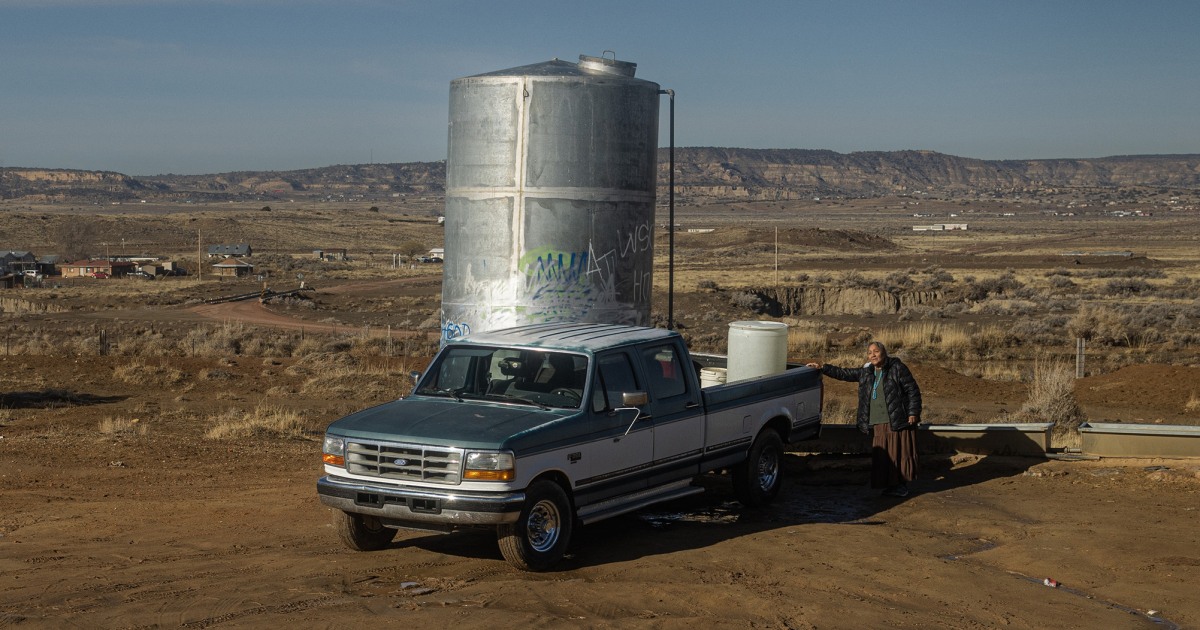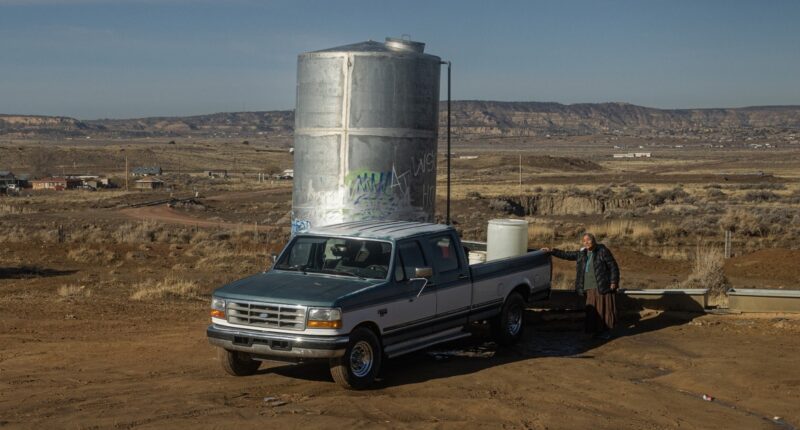
WASHINGTON — The Supreme Court on Thursday ruled against Navajo Nation over claims that the federal government has failed to assert the tribe’s desperate need for water access.
The justices, divided 5-4, said a lawsuit the tribe filed against the federal government must be thrown out.
Writing for the majority, Justice Brett Kavanaugh said that the 1868 treaty between Navajo Nation and the U.S. government did not require the latter to take active steps to secure water access.
“And it is not the judiciary’s role to rewrite and update this 155-year-old treaty,” he added.
Conservative Justice Neil Gorsuch joined the three liberal justices in dissent.
The tribe was merely asking the federal government to identify its water rights and was not seeking dramatic further steps, Gorsuch wrote.
As they have had to do in the tribe’s difficult history, “they must fight again for themselves to secure their homeland and all that must necessarily come with it,” he wrote.
Gorsuch added that the tribe can still intervene in ongoing water rights litigation.
“After today, it is hard to see how this court (or any court) could ever again fairly deny a request from the Navajo to intervene in litigation over the Colorado River or other water sources to which they might have a claim,” he wrote.
The lack of water and infrastructure to pipe it across the vast reaches of the more than 17 million-acre reservation — larger than the state of West Virginia — which straddles parts of Arizona, New Mexico and Utah, remains one of the biggest challenges facing Navajo leaders.
They say the federal government has failed to keep promises and left tribe members to suffer on arid lands even as the Colorado River runs directly along the reservation’s border and provides water for surrounding states.
The case touches upon the complex array of agreements and court decisions that over the decades have dictated how the waters of the Colorado River, divided into upper and lower sections, are allocated among the states. Further complicating matters, the Colorado River system is already depleted due to long-term drought conditions, with the longer-term threat of climate change looming in the future.
The tribe wants rights to waters in the lower Colorado River that flows along the Navajo reservation’s northwestern border.
The court, which has a 6-3 conservative majority, heard two consolidated appeals — one brought by the federal government and another by the states of Arizona, Nevada and Colorado, in addition to several California water districts.
The dispute is over whether the government had a legal duty that the tribe can enforce in court. The tribe, which signed the key treaty with the federal government in 1868, argues that under its agreements with the federal government that assured it would have access to land, it was assumed that the government also had a duty to ensure it had necessary water.
The Biden administration and the three states appealed after the San Francisco-based 9th U.S. Circuit Court of Appeals ruled in favor of the Navajo Nation in 2021, saying it could sue the government for an alleged failure to carry out its duties on behalf of the tribe.
The tribe argues that it is not seeking a decision on rights to the lower Colorado River specifically. Instead, its lawyers say that the federal government’s oversight of the entire Colorado River, as well as its duties to the tribe, mean that it is required to do a full assessment of the Navajo Nation’s water rights, which may affect how water from the Colorado River is allocated.
Colorado’s lawyers said in the state’s brief that a ruling for the tribe would cause “immediate and long-term disruptions to the coordinated management of the Colorado River.”
States point out they are already implementing a 2007 agreement on water shortages as well as a drought contingency plan adopted in 2019.
The Navajo Nation can access water from other sources, including the San Juan River, a tributary of the Colorado River, but the tribe says that is not enough. Many tribal members do not have access to running water and rely on wells and other localized water sources.
The tribe originally sued the federal government in 2003 seeking access to the main branch of the lower Colorado River, with the litigation dragging on ever since. In separate litigation in state court, the tribe has fought for access to the Little Colorado River, another tributary of the Colorado River.
A previous attempt to settle Navajo claims to the lower Colorado River failed about a decade ago.
Source: | This article originally belongs to Nbcnews.com









